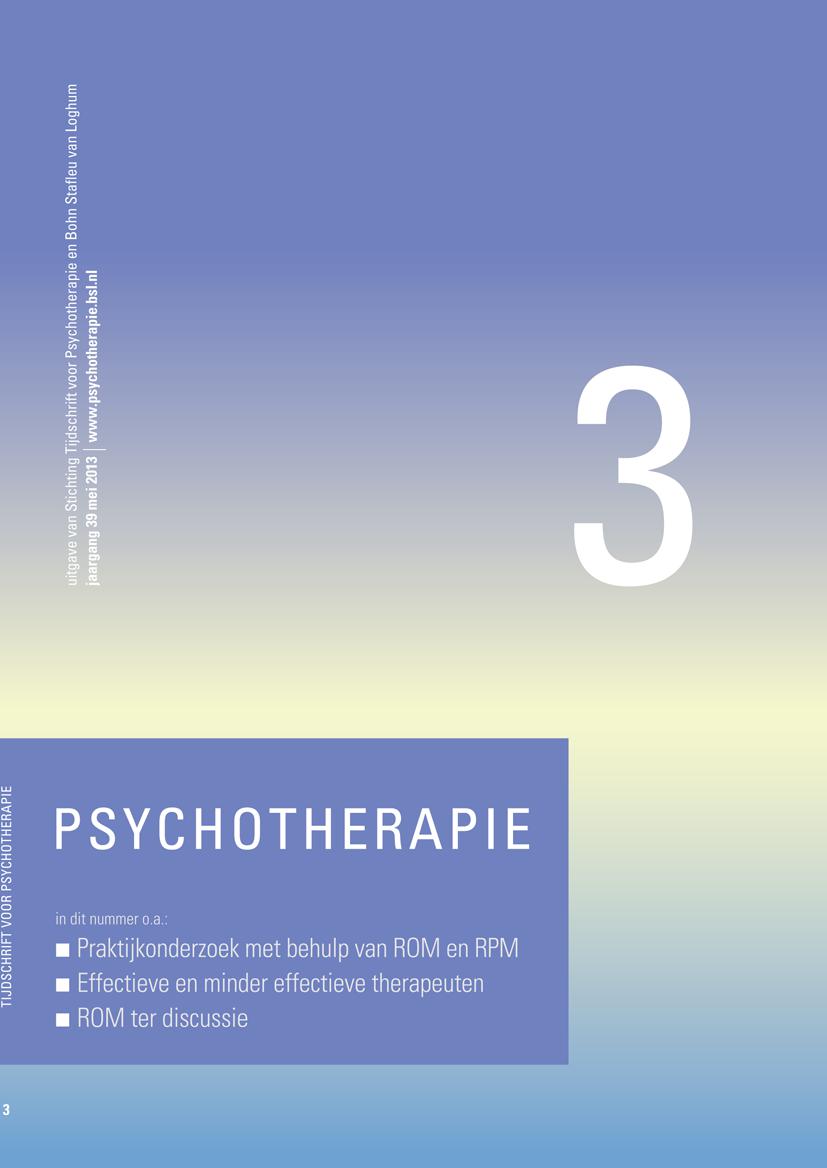Does Routine Process Monitoring (RPM) improve treatment efficacy? A comparative pilot study
Yvonne Winkelhorst, Anton Hafkenscheid Erik de Groot
| • |
Routine Process Monitoring (RPM) entails a standardized feedback system, using patient’s session-by-session scores on the
Outcome Rating Scale (ORS) and the Session Rating Scale (SRS) as the input. The ORS taps the patient’s daily functioning,
the SRS the quality of the therapeutic alliance as experienced by the patient. In this Dutch pilot study, two groups of personality-disordered
patients were compared. Different from the control condition, patients in the RPM group completed the ORS and SRS on a session-by-session
base and discussed their ORS and SRS ratings with their therapist. Patients’ score patterns on the Outcome Questionnaire (OQ-45)
defined treatment efficacy. Compared to the control condition, treatment efficacy was found to be slightly superior in the
RPM group. However, this difference did not reach statistical significance. No difference in drop-out rates was found between
both groups. Some limitations of this pilot study are discussed. Replication studies using larger sample sizes are recommended.
|
The effect of systematic feedback on the outcome of a short treatment for clients on a waiting list in mental health. A pilot
RCT
Bram Bovendeerd Erik de Groot
| • |
Routine Process Monitoring (RPM) gives the practitioner systematic feedback, both on progress in functioning as on the perceived
quality of the treatment, by using the Outcome Rating Scale (ORS) and the Session Rating Scale (SRS). In this RCT was assessed
whether RPM can be helpful to increase the effectiveness of treatment. The method was tested in a pilot study with 22 clients
on the waiting list for psychological or psychotherapeutic treatment. The outcome was monitored by the OQ-45. The potential
added value of RPM could not be demonstrated by the findings. It’s argued that RPM should be seen as a therapeutic intervention
as well as a measuring instrument. There are also strong indications that a brief treatment for clients on the waiting list
leads to a clinically significant improvement.
|
Is one therapist better than the other? An exploration of therapist effects in the Netherlands
Kim la Croix, Kim de Jong Erik de Groot
| • |
This study focuses on therapist effects and therapist characteristics that influence the effectiveness of therapy in Dutch
mental health care. A group of 16 therapists was divided in two groups, a ‘more effective’ group and a ‘less effective’ group.
The groups differed significantly in symptom progression of their clients. Therapist factors like sex, age, years of work
experience, professional training, treatment modality, self-efficacy and role-specific self-efficacy could not explain the
differences that were found in effectiveness. A significant correlation was found between symptom reduction and self-efficacy
in the role of therapist. Implications and limitations of the study are discussed and suggestions for future research are
given.
|

